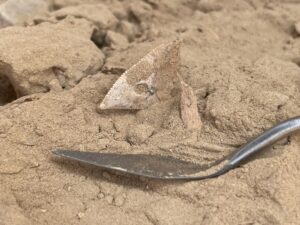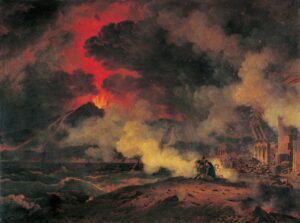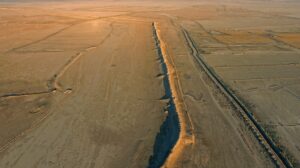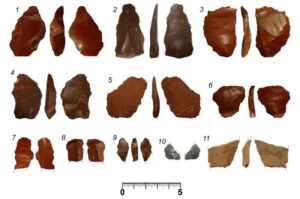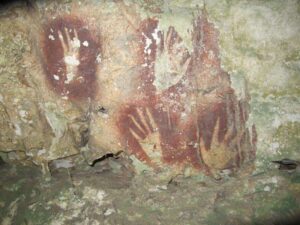Archaeologists have found a bullet inscribed with Julius Caesar’s name in Montilla, Spain. The almond-shaped lead bullet is the first projectile of its kind found in the region.
Molded and inscribed
Made from molten lead, the little projectile is 4.5cm long and weighs 71g. The creators must have used a mold to create the bullet and inscribe it. If there was a mold, there is good reason to believe the designers made more than one bullet.
Alongside Caesar’s name, there is the name of an unknown city. One side of the bullet reads “IPSCA” and the other reads “CAES.” Researchers believe the bullet was for a slingshot and suggests that at least some of the Indigenous people of Spain supported Caesar.

Photo: Javier Moralejo Ordax et al
There are records of battles in Spain between Caesar and Pompeii that mention Ipsca, but the place seems to have held some importance in the Roman civil war. The last battle, the Battle of Munda, was in Andalusia, southern Spain. Historians disagree on the exact location of the battle, but one possibility is Montilla. The discovery of this bullet might support this argument.
The Roman civil war began when Caesar refused to give up power after a ten-year war with Gaul. On his return to Rome, he would not bend to Pompeii and instead marched his troops into Rome. Pompeii saw this as a declaration of war. The civil war raged for four years across Italy, Greece, Egypt, Africa, and Spain.

Photo: Javier Moralejo Ordax et al.
A different meaning for ‘bullet with your name on it’
During this period, words on bullets were not unusual.
“In the first century BC, many inscribed glandes [bullets] were made because they were very useful instruments for housing short, very specific messages,” study lead Javier Moralejo Ordax told LiveScience. The research team thinks they may have been created to encourage Caesar’s troops and inform them that the town of Ipsca supported them.
The unknown community’s support for Caesar is unusual. Most indigenous communities in Spain were firmly on the side of Pompeii, making this finding significant. It offers new insight into the roles of indigenous people during the war, political alliances, and methods of ancient warfare.
The people of Ipsca may have created the bullets for Caesar’s army.

